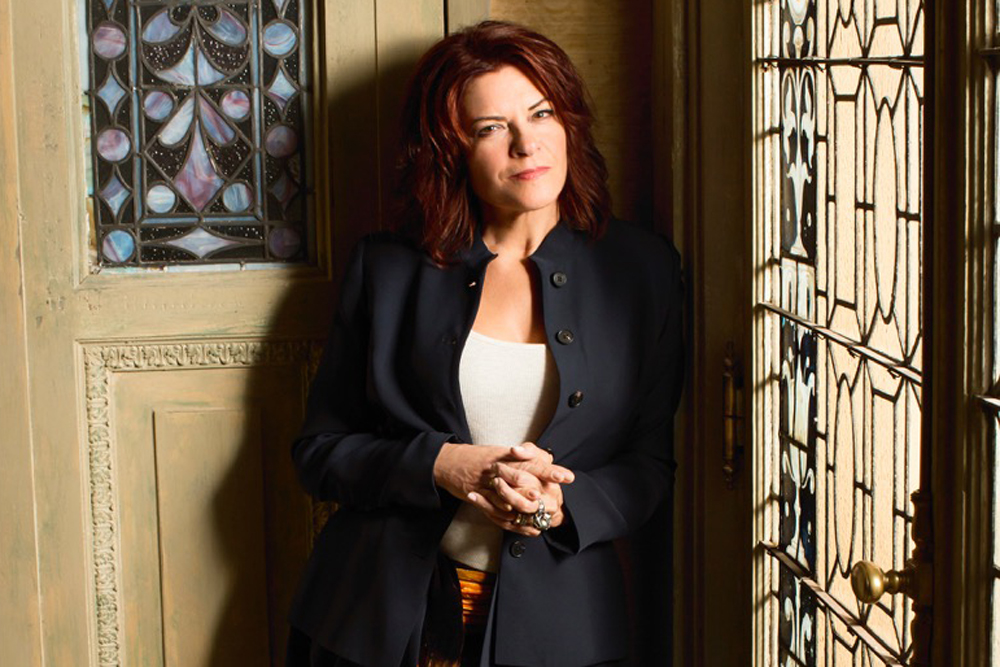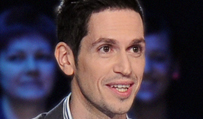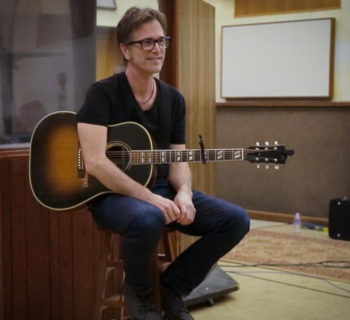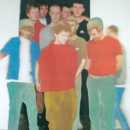With a “Producer of the Year” Grammy nomination and a roster of artists that includes Meghan Trainor, Twenty One Pilots, Jason Derulo, Phantogram, Fifth Harmony, Fitz and the Tantrums, Pitbull, 5 Seconds of Summer, DJ Snake featuring JRY and many more, Ricky Reed's career––18 years after its inception––has exploded.
As a solo artist, Reed's recent track “Express Myself,” is a prelude to more material coming on Epic Records. And he has his own label, Nice Life Recording Co., under the aegis of Atlantic Records.
Twisting roads lead upward to an Elysian Heights aerie perched high above Los Angeles. Within this compound is a homey recording studio with reclaimed wood, a wall of living plants, stunning views from the vocal booth and a Steinway Grand Piano formerly at Sound City Recording.
MC sat down with Ricky Reed in the studio control room for the following conversation as he relates the long journey that led him from washing dishes in a corporate kitchen to producing and writing mega-hits.
Music Connection: We put together a long playlist of your recent projects to discover the through-line. It’s difficult to pinpoint your sonic trademark.
Ricky Reed: I want my sound to be that I have no sound. It all stems from having a short attention span and always wanting to try new things. If I sat in one place I would probably get out of music eventually.
MC: What is the first step in determining your approach with an artist? Does it begin with a conversation?
Reed: That’s really where it starts. My job is not to give artists a sound, but to take their ideas and not only realize them, but sometimes challenge them, explode them, or sometimes to make them small. But it has to start with the artist and their perspective. It is never that I come into the studio and have this idea that I am going to impose on them. I think a lot of producers do that and it’s trouble.
MC: Once you’ve determined this perception, is it then a matter of setting up a specific creative atmosphere?
Reed: The first step is to provide an environment where the energy in the room is honest––fun, if it’s a fun day, or sad, if it’s a sad day. All you can do is create a place for songwriters where there is a sense of spontaneity and magic. And if something magical comes out of it, grab it right then and there. Don’t think of things as being in a demo stage or a finished stage. Grab the moment and protect it all the way through all of the layers until it reaches the public.
MC: You play a number of instruments; when producing, how do you decide where to start?
Reed: We talk about an idea and I see the mood the artist is in. “You want me to go in there and bang on the guitar, right?” Or, “Do you want to come sit with me and play the piano?” Or, “Maybe we just need to talk about how you’re feeling for a few hours and I will put together a rhythm that has a push and pull of the situation that you’re describing.” But it starts with a feeling before I gravitate to any instrument.
MC: Your tracks with Meghan Trainor on Thank You include co-writes and production on “NO” and “Me Too.” What was your approach?
Reed: It was different for different songs, but it always started with a mood, and the mood dictated the instrument. In “NO” we started writing a vocal before we had any tonal instrument, or a key. We had drums, and it’s almost like a rap. “My name is no” was the first line we wrote over drums, that’s why the song starts like that.
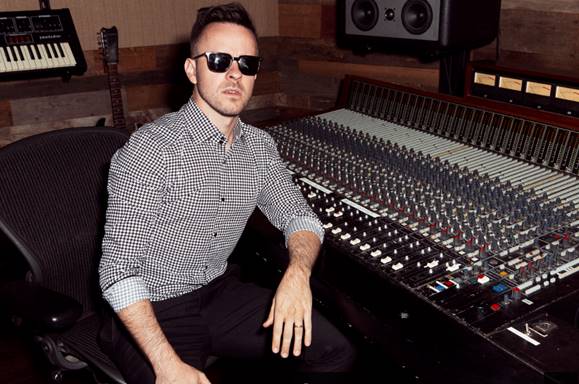
MC: On the Thank You project, you are also credited as executive producer. What does this title involve?
Reed: It’s a funny title because sometimes someone can get executive producer credits out of politicking and negotiating. You can also have situations, especially on pop records, where you have multiple producers on albums and multiple people mixing. If an artist cares about there being a thread that runs through [the album], the executive producer might help the artist find that voice to make sure a recording is cohesive. Making a pop album when you’re dealing with that much personnel can be exhausting for an artist. Not just physically but emotionally, navigating all of these relationships.
MC: One observation in listening to your tracks is that each instrument has its own hook.
Reed: That comes from being obsessed with Quincy Jones’ work with Michael Jackson. I went through a phase where I was listening to Thriller from start to finish once a day for three months. A friend of mine told me, “Listen to Thriller, get inside of it, analyze it, find what makes it tick and what it does to make you tick.”
It was the instrumental hooks. The vocals and the instruments making space for each other almost like a choreographed ballet. The vocal ends, the tom fill hits, then there’s the guitar lead, but the bass slaps before the guitar note. That was the first time where I realized you could be dazzling the listener at every turn, and that makes the recording so much more effective.
MC: You went to an interesting place to record Twenty One Pilots: Columbus, OH.
Reed: Columbus is strangely very rock & roll. I’ve played a lot of shows there. It’s good people, good food, a great live music community and the birthplace of our Twenty One Pilots.
MC: How did you get the gig?
Reed: I had met with Tyler Joseph here in L.A. over lunch a few months previous. He just has a different lens through which he sees the world. I remember going home to my then girlfriend––who is now wife––and telling her “I can’t explain what makes Tyler different but he’s different. I hope they’ll give me a shot to work on the album.” Mind you, at that point the biggest records I had done were with Jason Derulo, Pitbull, maybe Fifth Harmony, but I grew up playing in bands.
MC: Did Twenty One Pilots agree immediately?
Reed: We seek to prove ourselves as the right fit for that project every single time. When I say “We” I’m referring to my team; the people who help me get these opportunities. I say let me sit down with the artist. Give me one day. Let me do one song. Let us prove that it makes sense. “Ride” was the first song. That’s what I went to Columbus for.
MC: Did you work on new ideas for Twenty One Pilots, or help them to flush out ideas that they had?
Reed: Tyler is a brilliant songwriter, also a hit songwriter, also a consummate artist and he had visions for the tastes and tone of the album already in place that were innovative and unlike anything I’d ever heard. And since he had the songs already written I got to focus my energy entirely on production, painting the sonic landscape that he was envisioning. It was super-fun for me. It was the most traditional producer/band record that I have done.

